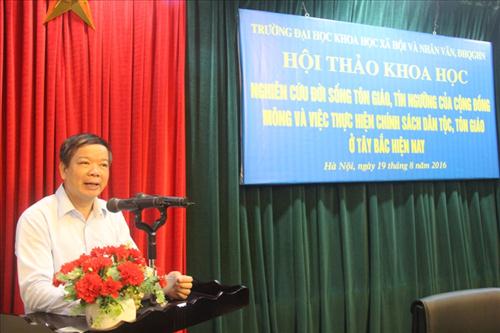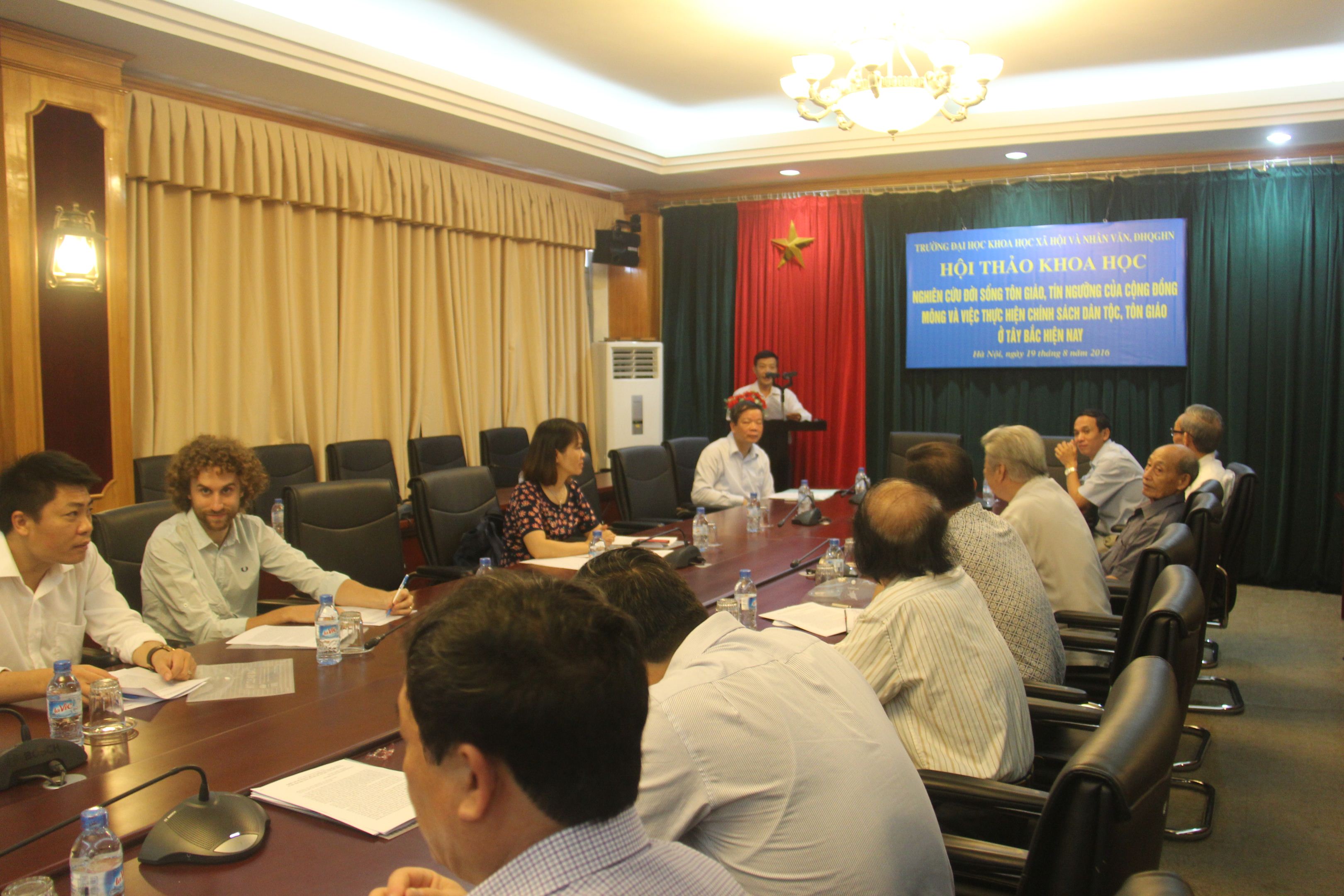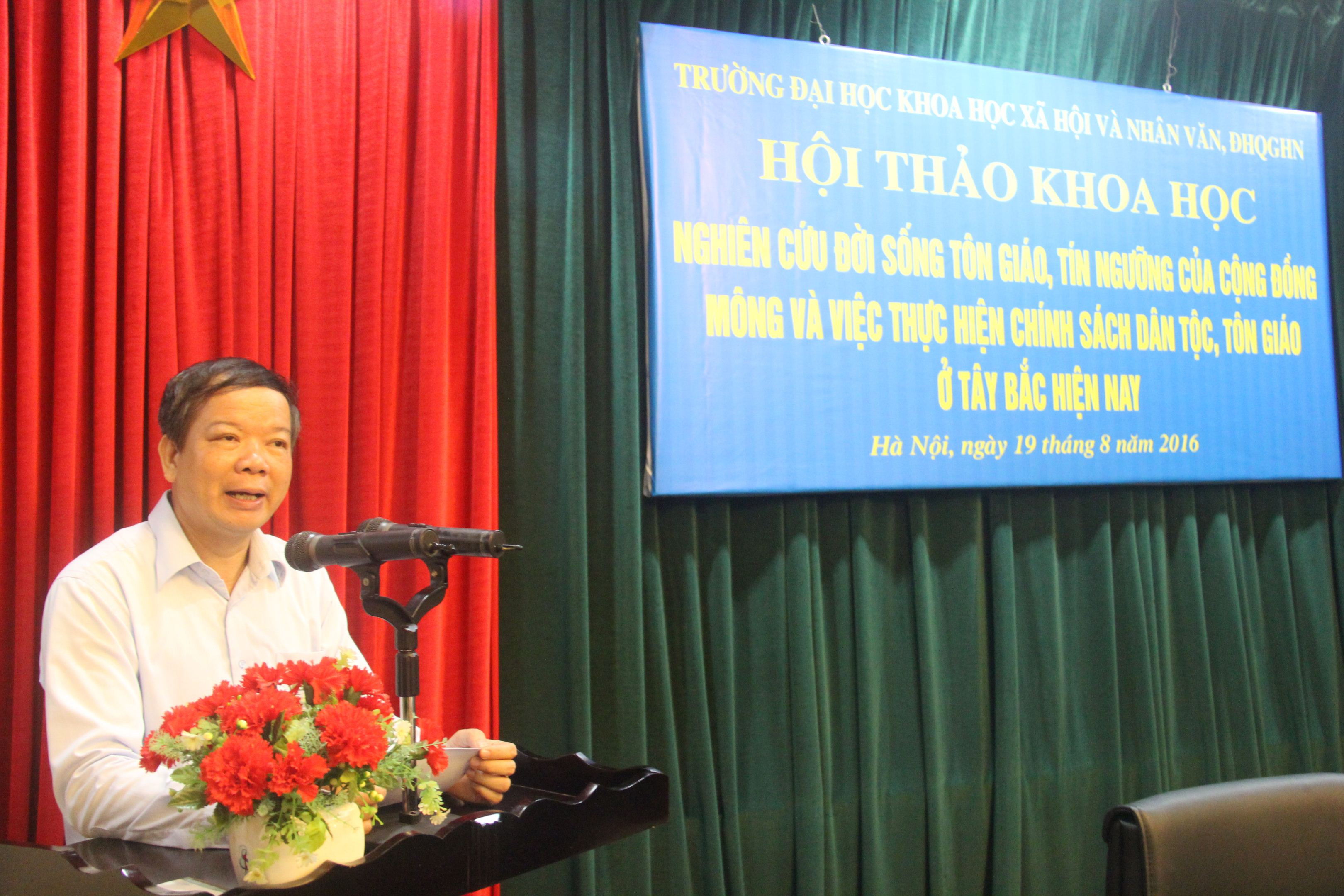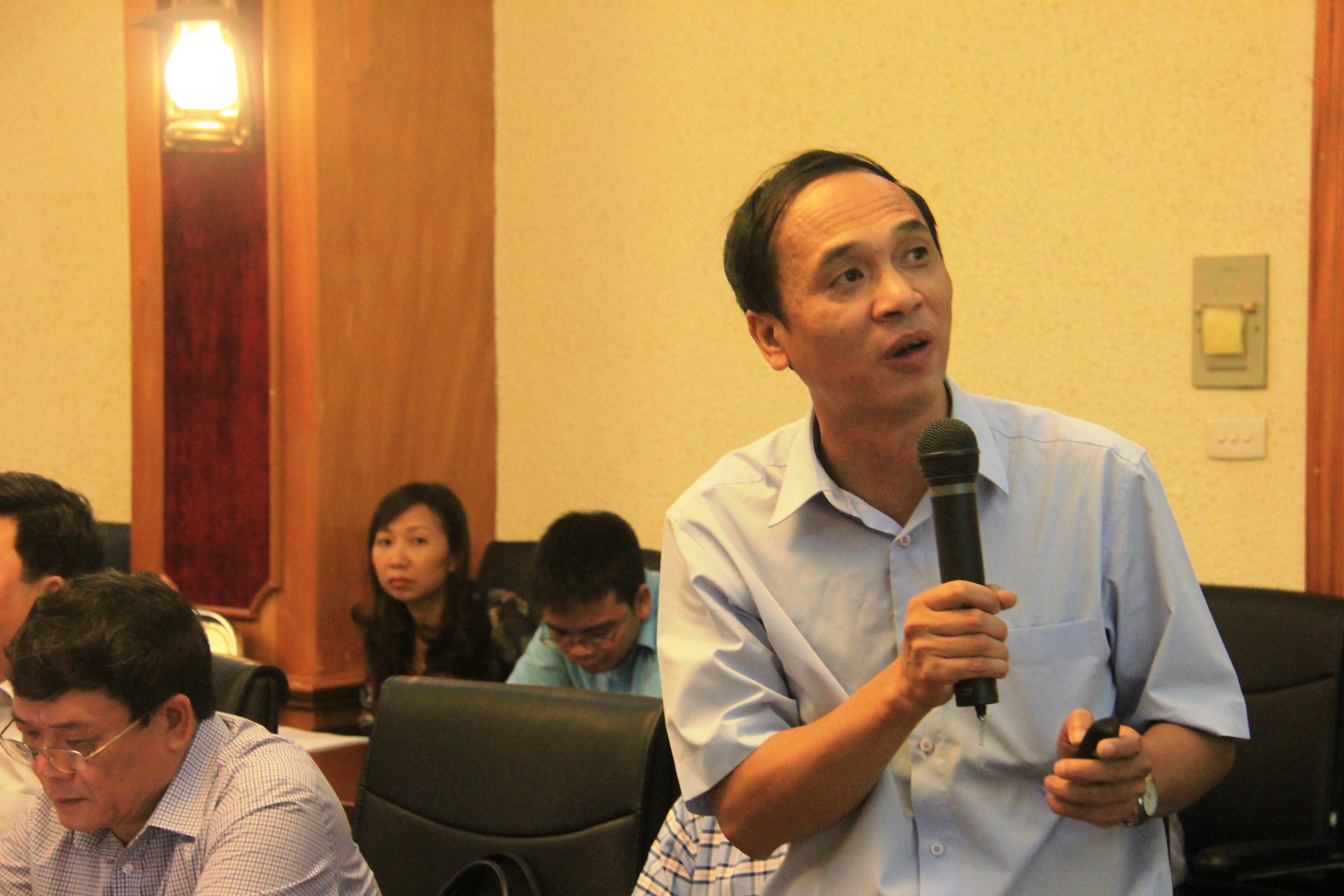
Attending the workshop were Ms. Thieu Thi Huong - Head of the Protestant Department, Government Committee for Religious Affairs; Prof. Dr. Nguyen Van Kim - Party Committee Secretary, Vice Rector of the University of Social Sciences and Humanities; along with representatives of the Religious Committee, Department of Home Affairs of the provinces and some prestigious members of the traditional Mong people.
As a nation with a long history and culture, the Mong people have created many literary, poetic and artistic works imbued with their own cultural nuances. The Mong people are also one of the ethnic groups facing many economic difficulties. In addition, in the past two decades, the increase of a number of Mong people following Protestantism has led to many changes in life, religion, beliefs, culture and society. In many families, clans and villages, there have appeared groups of people advocating the preservation of traditional religions and beliefs with their brothers becoming Protestants. This is because the traditional Mong people's cosmology has many similarities with the Christian cosmology; in addition, traditional Mong religion and beliefs are weakening, even falling into crisis.

Overview of the workshop
Faced with that reality, since 2005, the Prime Minister has issued Directive 01 on matters related to Protestantism and recently there have been programs summarizing and evaluating on the occasion of the 10th anniversary of the issuance of this Directive. However, the recognition of the legal status of Protestant groups in some northern mountainous provinces still faces many difficulties. In order to facilitate the exchange and discussion on this issue, the Workshop "Research on the religious life and beliefs of the Mong community and the implementation of ethnic and religious policies in the Northwest today" is expected to help scientists, managers, and religious dignitaries think and discuss to not only present the current situation and trends but also propose scientific and practical solutions so that the traditional Mong people and the Mong community following Catholicism and Protestantism can feel secure, live a good life, and obey the laws of the State.
Speaking at the opening of the workshop, Prof. Dr. Nguyen Van Kim (Party Secretary, Vice Rector of the University of Social Sciences and Humanities) emphasized: “The Mong people are an ethnic group with many unique historical and cultural features. For centuries, the Mong people have settled in Vietnam and many Southeast Asian countries and are one of the brotherly, united and close-knit ethnic groups in the big family of Vietnamese ethnic groups.”

Prof. Dr. Nguyen Van Kim (Party Committee Secretary, Vice Rector of the University of Social Sciences and Humanities) delivered the opening speech of the conference
Therefore, the Vice Principal said, “Although this is only a workshop within the scope of a State-level project under the Scientific Research Program for Sustainable Development in the Northwest, the issues raised by the workshop have a broader significance, because the issues of the Mong community in many cases are issues of common concern to the country and many countries in the world.”

Associate Professor, Dr. Nguyen Quang Hung (Deputy Head of the Faculty of Philosophy, University of Social Sciences and Humanities) presented the introductory report at the conference.
After the opening session, the Conference listened to the report “Religious life and beliefs of Mong people in Vietnam: Current situation and solutions” presented by Associate Professor, Dr. Nguyen Quang Hung (Deputy Head of the Faculty of Philosophy, University of Social Sciences and Humanities). The report introduced some general features of the Mong community in the world and in Vietnam, presented an overview of the Protestant Mong community in Vietnam, explained the reasons why a part of Mong people converted to Protestantism, and proposed some (tentative) solutions for traditional Mong people and Protestant Mong people. The report received many comments and discussions from representatives of the Religious Affairs Committee, the Department of Internal Affairs of the provinces, some prestigious representatives of the traditional Mong people, scientists, some dignitaries and Protestant followers.
Author:Article and photos: Tran Minh
Newer news
Older news